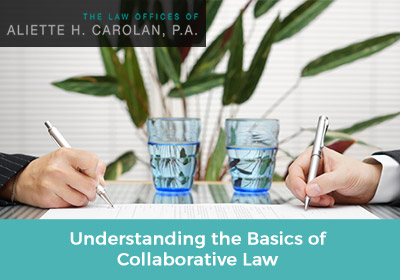 When the time comes to file for divorce you need to have a plan in place for how you will move forward. It’s important to have the conversation with your spouse when both of you have plenty of time to talk. This is not a conversation that you rush to get through, even though it will be one of the more difficult ones you will have in your life. There are couples that cannot find common ground when going through a divorce, but the majority of divorcing couples will be able to agree on the division of property, assets, child custody, alimony and other important factors that go into a divorce agreement. Not every divorce has to wind up in court. That’s where the collaborative approach to divorce can come into play.
When the time comes to file for divorce you need to have a plan in place for how you will move forward. It’s important to have the conversation with your spouse when both of you have plenty of time to talk. This is not a conversation that you rush to get through, even though it will be one of the more difficult ones you will have in your life. There are couples that cannot find common ground when going through a divorce, but the majority of divorcing couples will be able to agree on the division of property, assets, child custody, alimony and other important factors that go into a divorce agreement. Not every divorce has to wind up in court. That’s where the collaborative approach to divorce can come into play.
Category: Collaborative Law
The Lesser-Known Benefits of Collaborative Divorce
While many people dream of marrying their soul mate, few anticipate the reality of a divorce. While collaborative divorce is not for everyone, it is often a path taken by couples that want to avoid a particularly contentious divorce. Collaborative divorces provide a kinder, gentler way to divorce, while keeping the details private.
Collaborative Divorce Can Result in Peaceful, Acceptable Agreements Between Spouses
Collaborative divorce has been in existence for the past 26 years. Perhaps one of its most attractive benefits is that you do not have to go to court, nor allow a judge to make decisions on your behalf that will stay with you for decades to come.  In a collaborative divorce, each side has input, and both parties jointly make decisions regarding the details of the divorce. Together, along with your individual collaborative attorneys, you can come to peaceful, yet acceptable, agreement about both of your future’s.
In a collaborative divorce, each side has input, and both parties jointly make decisions regarding the details of the divorce. Together, along with your individual collaborative attorneys, you can come to peaceful, yet acceptable, agreement about both of your future’s.
Understanding the Basics of Collaborative Law
 Nearly half of all marriages end in divorce, and Florida is home to one of the highest divorce rates in the nation. Going through a divorce, even under the best of circumstances, is difficult. Dividing assets and ironing out child custody details is often a major source of contention for divorcing couples. And once the arguring starts, it may seem like a mutually amicable agreement is completely out of reach. If you and your ex-spouse are having difficulties agreeing on child custody, alimony, or property division, you may want to consider a collaborative divorce.
Nearly half of all marriages end in divorce, and Florida is home to one of the highest divorce rates in the nation. Going through a divorce, even under the best of circumstances, is difficult. Dividing assets and ironing out child custody details is often a major source of contention for divorcing couples. And once the arguring starts, it may seem like a mutually amicable agreement is completely out of reach. If you and your ex-spouse are having difficulties agreeing on child custody, alimony, or property division, you may want to consider a collaborative divorce.


